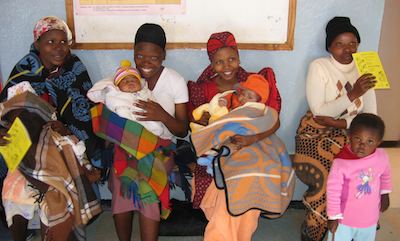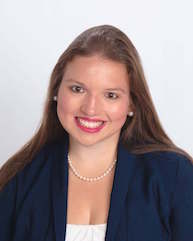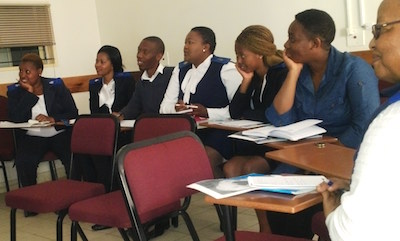‘This Is Not a Delivery You Need to Refer to a Hospital’.

One out of 32 women in Lesotho dies from pregnancy and childbirth complications, and the country has the world’s third highest neonatal mortality rate. In Lesotho’s Leribe District, almost half of births happen at home, often without a skilled attendant, says MPH student Brittany Ranchoff, who completed her practicum with the Boston University Family Medicine Global Health Collaborative’s Lesotho-Boston Health Alliance (LeBoHA). At the same time, she says, nurse-midwives in communities and local clinics are too quick to refer women to the far-off district hospital—which they might not reach in time.

To help increase the number of births performed by skilled nurse-midwives in community health centers—and, in turn, reduce maternal and infant mortality—Ranchoff worked with LeBoHa on the tail end of their two-year program, Promoting Maternal Health through Midwifery Training and Integration.
“This is to increase their knowledge and their skills, a retraining program to increase that confidence,” Ranchoff says. “‘You can do this! This is not a delivery that you need to refer to a hospital.’” The program included retraining and mentorship for 16 nurse-midwives from 16 community health centers, and other efforts to better incorporate midwives into the healthcare system.
As it came to an end in the fall of 2016, Ranchoff created the tools that will be used to see how well the program worked. She created an updated program evaluation plan and developed a new set of data collection tools. She put together a facilitator and participant guide for program expansion, and systems for data entry and analysis.

These tools will be used not just to gather and evaluate the data from the past two years, Ranchoff says, but also to help expand the program into other parts of the country, so that future work will have evaluation systems in place “from the get-go.”
Ranchoff, who went into the practicum already knowing she wanted to work with program evaluation and maternal health, says the experience gave her a great set of skills. “I gained a lot,” she says, “from learning how to create a focus group guide to data collection tools to creating a facilitator guide—anything!”
Those skills have also already landed the part-time student a full-time job: “I’m working at Beth Israel Deaconess Medical Center as a research assistant, and my practicum was very similar to this, I’m observing and helping with their Faculty Development in Teaching Quality Improvement Project.”
The practicum, she says, “got my foot in the door.”